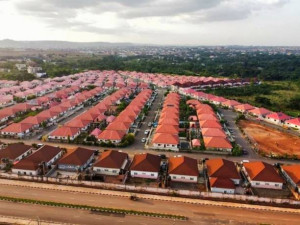Understanding Homelessness in Nigeria
Posted on 26/01/2024 2:37 PM | by NaijaHouses

Factors and Challenges
Despite Nigeria being free from armed conflict or war displacing its citizens, it surprisingly leads African countries with the highest levels of homelessness. This phenomenon, occurring in the largest economy on the continent, raises concerns about the factors contributing to this crisis. While Egypt follows closely with an estimated 12 million homeless individuals, the issue persists across Africa, with countries like DR Congo, Somalia, Sudan, Ethiopia, South Sudan, Cameroon, Mozambique, and Burkina Faso also grappling with significant homelessness.
Factors Contributing to Homelessness:
Business Insider Africa, an online platform focused on human settlements, notes that homelessness in Nigeria transcends geographical and socio-economic boundaries. Various reasons contribute to the widespread issue, including armed conflicts, internal displacement, urbanization, rapid population growth, and a scarcity of affordable housing, particularly in major cities like Lagos.
Urbanization and Population Growth:
Adekunle Agbetiloye, a researcher at Business Insider Africa, emphasizes that urbanization and rapid population growth play significant roles in Nigeria's homelessness crisis. Cities like Lagos face challenges due to the scarcity of affordable housing, forcing a considerable portion of the population into homelessness. The commissioner for housing in Lagos states that over 80 percent of the state's 22 million residents live in rented accommodations.
Read also:
Housing Deficit and Supply Challenges:
Nigeria grapples with a substantial housing deficit, estimated at 22 million units, requiring an annual production of about 700,000 housing units for the next two decades to bridge the gap. Presently, both public and private developers collectively supply only 50,000 units annually. Various challenges, including high input and energy costs, volatile exchange rates, cumbersome property registration processes, and infrastructure limitations, contribute to the housing supply shortage.
Egypt's Perspective:
In Egypt, the housing problem is deemed a pressing issue impacting the country's development programs. Analysts attribute this crisis to high rates of population growth, domestic migration from rural to urban areas, and the allocation of public funding primarily for constructing new housing units. The country has designated over 1,200 areas for irregular dwellings, allowing homeless individuals to construct shelters that do not adhere to standard building laws.
Understanding the root causes of homelessness in Nigeria requires a holistic approach that addresses socio-political issues, urbanization challenges, and the urgent need for affordable housing solutions. As Nigeria navigates its housing deficit, collaborative efforts from the government, private sector, and international partners are crucial to providing sustainable solutions and improving the living conditions of its citizens.

